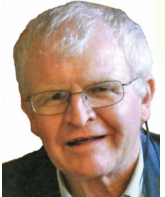Connect first before sharing your views
It seems like conversations these days are as a difficult as ever. Whether with family members, work colleagues, employees or strangers, the ability to have a productive discussion on any topic where there might be disagreement is invariably fraught. This is especially true when the subject veers into politics.
We seem to have two ineffective modes when it comes to political conversations: engaging in conflict or avoiding political topics altogether. Neither seems particularly satisfying — who wants a stressful verbal clash, and having an elephant hovering in the room is not great either. In a workplace setting, avoidance may be better than conflict, but it can foster an environment where people who need to work together may steer clear of each other.
I was honored to help organize a recent workshop on managing difficult conversations with colleagues for the NH House of Representatives as part of my volunteer work with Braver Angels (braverangels.org). This national citizens’ movement brings Americans together to bridge the partisan divide and strengthen our democratic republic. Embracing values of respect, humility, honesty and responsible citizenship, the goal of Braver Angels is not to change people’s views of issues, but to change their views of each other.
This State House workshop was planned before the November election that resulted in our largest state legislative body in the country being so closely divided. But those results (201 Republicans to 198 Democrats and one tie) made the topic that much more relevant.
More than 100 representatives attended the training led by William Doherty, a Braver Angels founder and professor of family therapy at the University of Minnesota.
The workshop goals, which apply to any difficult conversation, were to:
• Show colleagues who disagree with you that you have accurately heard them.
• Express your views in a way that colleagues can hear even if they disagree.
• Find areas of agreement or shared interest whenever possible.
Key principles are to:
• Connect first, then share your view.
• Aim for “accurate disagreement” instead of “distorted disagreement.”
• Focus on policy and not underlying motives (assume good intentions unless proven otherwise).
• Strive to be consistent.
Legislators were paired with someone they did not know, ideally from the other political party, to practice three skills (Acknowledge, Agree, Perspective):
• Acknowledge the other person’s view and the strength of their feelings about the issue.
• Find something to agree with, if possible.
• Offer your perspective using “I” statements, mentioning values and avoiding negative labels.
Comments on a follow-up evaluation included:
• “Learning to listen for points of agreement rather than how we disagree was a very good tip.”
• “The practical exercises with a member of the other party made it much more authentic.”
• “Makes me ‘stop and think’ first.”
• “We can work together if we only will listen to the opposing view.”
That last comment sums up the essence of Braver Angels and the goal of difficult conversations generally. We can work together if we only will listen to the opposing view.
These skills also apply to non-political conversations, such as disagreements about workplace expectations or performance. Listening skills are especially critical.
Writing in Harvard Business Review, James Detert observes: “When navigating a difficult conversation, you need to craft your message while keeping the other person’s feelings and opinions in mind.” He lists common mistakes:
• Don’t assume your viewpoint is obvious.
• Don’t exaggerate.
• Don’t tell others what they should do.
• Don’t blame others for your feelings.
• Don’t challenge someone’s character or integrity.
Sadly, we have gotten to a point that many are quick to demonize those who disagree with them, assuming and often stating (especially on social media) that “those people” are evil or stupid. Doing our best to treat everyone with dignity and respect is clearly a better way to go.
We each have an extraordinary opportunity to make a difference in people’s lives, including our own. Don’t underestimate your impact!
Douglass P. Teschner, founder of Growing Leadership LLC, can be reached at dteschner@Growing-LeadershipLLC.com.